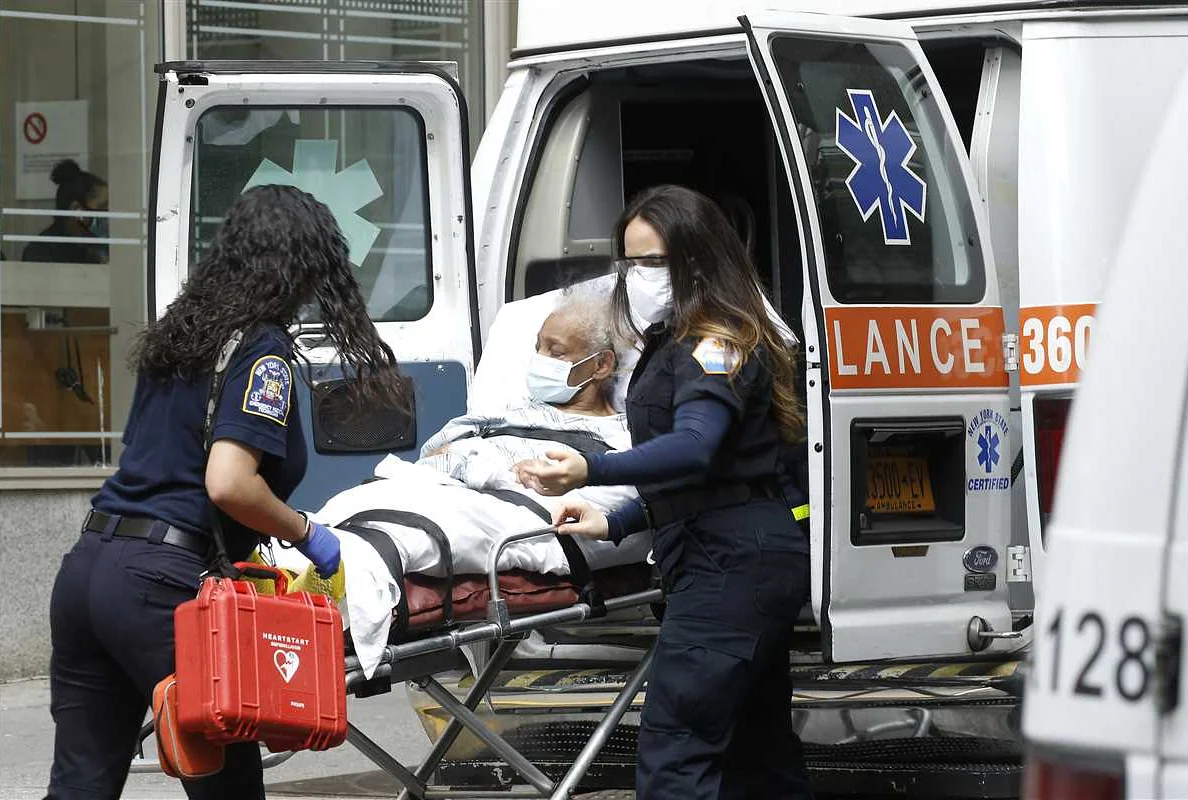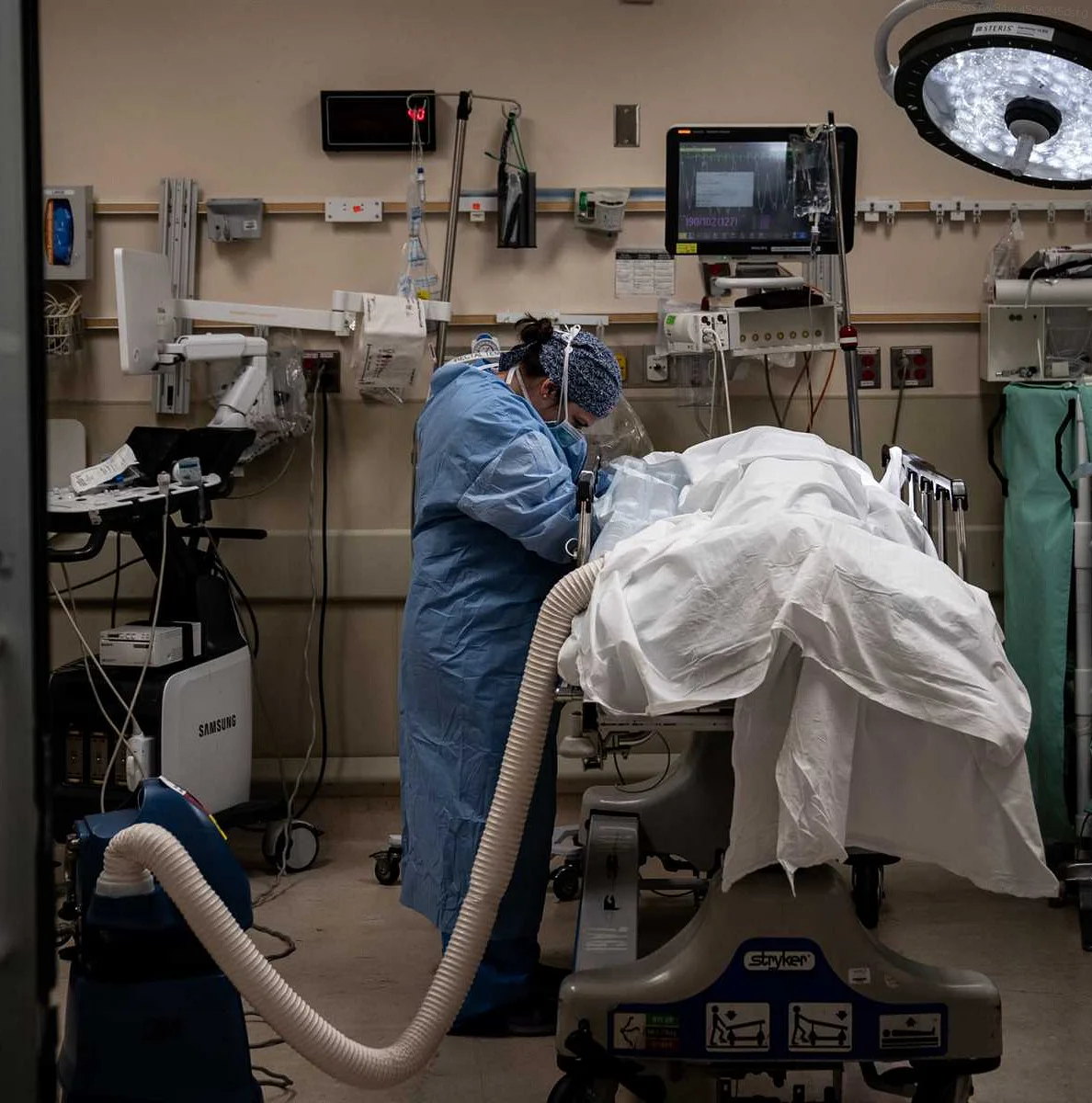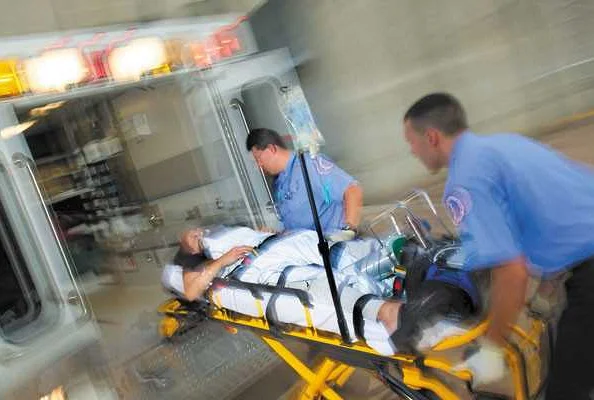When to Take a Person to the Hospital, Even If They Don’t Need to Go: Insights from the Ambulance Doctor
Find out when it is necessary to take a person to the hospital, according to the ambulance doctor, even if they may not seem to require immediate medical attention. Learn about the criteria that justify hospitalization and the importance of prompt medical care.
When faced with a medical emergency, it can be difficult to know whether to rush someone to the hospital or wait and see if their condition improves. As an ambulance doctor, I have encountered numerous situations where the decision to take a person to the hospital has made all the difference in saving their life. In this article, I will share some key insights that can help you make an informed decision when faced with a medical emergency.
One of the most important factors to consider is the severity of the symptoms. If a person is experiencing severe chest pain, difficulty breathing, or sudden loss of consciousness, it is crucial to call for emergency medical assistance immediately. These symptoms may indicate a heart attack, stroke, or other life-threatening condition that requires immediate medical attention.
Additionally, it is important to pay attention to any changes in a person’s behavior or appearance. If someone suddenly becomes confused, disoriented, or exhibits unusual behavior, it may be a sign of a serious underlying condition. Similarly, if a person’s skin appears pale, clammy, or bluish, it could indicate a lack of oxygen or poor circulation, which requires prompt medical evaluation.
Another factor to consider is the presence of persistent or worsening symptoms. If someone is experiencing ongoing pain, vomiting, or bleeding that does not improve or worsens over time, it is essential to seek medical attention. These symptoms could be indicative of a serious underlying condition that requires medical intervention.
Ultimately, the decision to take a person to the hospital should not be taken lightly. It is always better to err on the side of caution and seek medical help if you are unsure about the severity of a person’s condition. By being aware of the aforementioned insights, you can make an informed decision that may save someone’s life in a medical emergency.
Serious Injuries and Trauma
In cases of serious injuries and trauma, it is crucial to seek immediate medical attention. These types of injuries can be life-threatening and require specialized care in a hospital setting. If someone experiences any of the following, it is essential to call an ambulance or go to the nearest emergency department:
| Severe bleeding | Head or neck injuries |
| Breathing difficulties | Loss of consciousness |
| Deep wounds or lacerations | Broken bones |
| Severe burns | Spinal cord injuries |
In the case of severe bleeding, it is important to apply pressure to the wound using a clean cloth or bandage. Head or neck injuries can be extremely dangerous, as they may involve damage to the brain or spinal cord. Breathing difficulties could be a sign of a collapsed lung or other serious internal injuries. Loss of consciousness can indicate a concussion, seizure, or other medical emergency.
Deep wounds or lacerations may require stitches to prevent infection and promote proper healing. Broken bones may need to be immobilized or surgically repaired. Severe burns can cause significant pain and tissue damage, requiring specialized treatment. Spinal cord injuries can lead to paralysis or loss of function and should be assessed and treated promptly.
Remember that these are just general guidelines, and each situation should be evaluated individually. Always trust your instincts and seek professional medical help when in doubt. Prompt action can make a significant difference in the outcome of a serious injury or trauma.
Severe Symptoms and Illnesses
When it comes to severe symptoms and illnesses, it is crucial to act quickly and seek immediate medical attention. These conditions require urgent care and should not be ignored. If you or someone you know experiences any of the following symptoms, it is important to call for an ambulance or go to the hospital right away:
- Difficulty breathing or shortness of breath
- Chest pain or pressure
- Sudden and severe headache
- Loss of consciousness or fainting
- Seizures
- Uncontrolled bleeding
- Severe allergic reactions, such as difficulty breathing, swelling of the throat or tongue, or hives
- Sudden and severe abdominal pain
- Signs of a stroke, like sudden weakness or numbness on one side of the body, difficulty speaking, or blurred vision
- Severe burns
- Overdose or poisoning
If you are unsure whether a symptom or illness is severe enough to warrant a trip to the hospital, it is always better to err on the side of caution and seek medical advice. Do not hesitate to call your local emergency number for guidance, as trained professionals can provide the necessary assistance and advice to ensure your safety and well-being.
Signs of Stroke or Heart Attack

Recognizing the signs of a stroke or heart attack is crucial in determining when to take a person to the hospital. These medical emergencies require immediate attention and can be life-threatening if not treated promptly. Here are the common signs to look out for:
- Sudden weakness or numbness on one side of the body
- Difficulty speaking or understanding speech
- Severe headache with no known cause
- Dizziness or loss of balance
- Confusion or trouble understanding others
- Difficulty breathing or shortness of breath
- Chest pain or discomfort that radiates to the arm, jaw, or back
- Nausea or vomiting
- Excessive sweating
- Unexplained fatigue or weakness
If you or someone around you experiences any of these symptoms, do not wait, and call for immediate medical assistance. It is better to seek help and have the condition assessed by medical professionals rather than waiting and risking further complications. Remember, time is of the essence when it comes to strokes and heart attacks.
Uncontrolled Bleeding or Severe Pain
If a person is experiencing uncontrolled bleeding or severe pain, it is important to seek immediate medical attention. Uncontrolled bleeding can be a sign of a serious injury or internal bleeding that requires medical intervention. This can include heavy bleeding from a wound, bleeding that does not stop with direct pressure, or bleeding that is pulsating or spurting.
Severe pain can also be a sign of a serious medical condition and should not be ignored. This can include chest pain that radiates to the arm or jaw, severe abdominal pain, or intense headaches. If the pain is sudden and severe, it may be necessary to call for emergency medical services.
In these situations, it is best to call emergency services or take the person to the hospital immediately. The trained medical professionals can assess the situation and provide the necessary treatment. It is important not to attempt to drive the person to the hospital yourself if they are experiencing severe bleeding or pain, as it can be unsafe and delay necessary medical care.
Remember, it is always better to err on the side of caution and seek medical help when there is uncontrolled bleeding or severe pain. Prompt medical attention can help prevent further complications and save lives.
Persistent Vomiting or Difficulty Breathing

Persistent vomiting or difficulty breathing are serious symptoms that should not be ignored. If someone is experiencing persistent vomiting, it could be a sign of a severe illness or underlying medical condition that requires immediate medical attention. Likewise, difficulty breathing can be a sign of a potentially life-threatening condition such as an asthma attack, heart failure, or a severe allergic reaction.
If someone is unable to stop vomiting or is experiencing projectile vomiting, it is important to seek medical help promptly. This could indicate a gastrointestinal obstruction or an infection that needs medical intervention. It is also essential to look out for other symptoms, such as severe abdominal pain, high fever, dehydration, or blood in the vomit, as these could indicate a more serious condition.
Difficulty breathing should never be taken lightly. If someone is having trouble catching their breath, is wheezing, or is experiencing shortness of breath, it is crucial to act immediately. Breathing difficulties can be caused by a variety of conditions, including asthma, pneumonia, a collapsed lung, or anaphylaxis. Prompt medical attention is necessary to determine the cause and provide appropriate treatment.
If you or someone you know is experiencing persistent vomiting or difficulty breathing, do not hesitate to call emergency services or go to the nearest hospital. These symptoms can be signs of a serious medical condition that requires prompt evaluation and treatment. It is always better to be safe and seek medical help rather than ignoring potentially life-threatening symptoms.
Loss of Consciousness or Altered Mental State

Loss of consciousness or altered mental state can be a serious medical emergency and should prompt a call to emergency services or a trip to the hospital. There are many potential causes for loss of consciousness or altered mental state, including:
- Head trauma: A blow to the head can cause loss of consciousness or altered mental state. This could be the result of a fall, a motor vehicle accident, or any other type of injury to the head.
- Stroke: A stroke occurs when the blood supply to the brain is interrupted. This can cause sudden loss of consciousness or a change in mental status.
- Seizures: Seizures can cause a person to lose consciousness and may be a sign of an underlying medical condition, such as epilepsy.
- Drug overdose: Certain drugs or medications can cause loss of consciousness or altered mental state, especially when taken in excessive amounts.
- Infection: Infections such as meningitis or encephalitis can cause changes in mental status and may require urgent medical attention.
If someone loses consciousness or experiences a change in mental status, it is important to call for emergency help immediately. While waiting for medical professionals to arrive, it may be helpful to:
- Stay with the person: Someone who has lost consciousness or is experiencing an altered mental state may be at risk for further injury. Stay with them to ensure their safety.
- Take note of the person’s symptoms: Pay attention to any additional symptoms the person may be experiencing, such as slurred speech, weakness in one side of the body, or difficulty breathing. This information can be valuable for medical professionals.
- Provide comfort: Reassure the person that help is on the way and try to keep them calm.
Loss of consciousness or altered mental state can be a frightening experience, both for the person experiencing it and for those around them. Acting quickly and seeking medical attention can help ensure the best possible outcome.